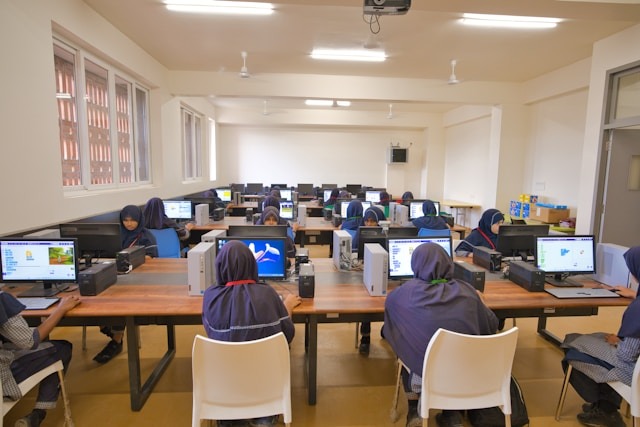Is Nigeria Ready for Computer-Based O’level Exams? Comparing Pen-and-Paper with CBT
Across Nigeria, a new conversation is gathering momentum: Should major O’level examinations like WAEC and NECO move from traditional pen-and-paper testing to Computer-Based Testing (CBT)?
While CBT is modern, fast, and increasingly popular for exams like JAMB’s UTME, recent challenges have exposed serious weaknesses in the system. Many educators, parents, and students are asking:
Is Nigeria truly ready to switch O’level exams entirely to CBT? And which method — pen-and-paper or CBT — is actually better for testing students’ academic abilities?
This article explores both sides of the debate and offers insights into Nigeria’s readiness for this major educational shift.
Understanding Pen-and-Paper Exams
For decades, O’level exams in Nigeria have relied on pen and paper. Students physically write answers in booklets, draw diagrams, and show mathematical workings.
Advantages of Pen-and-Paper Exams
- Familiar and Comfortable: Most students feel at ease writing by hand. They’ve practiced essay writing, diagram drawing, and calculations throughout school.
- Better for Essays and Long Answers: Subjects like English Language, Literature, and Government require essay writing. Paper allows students to freely express ideas in long form without typing stress.
- Ideal for Diagrams and Sketches: Biology diagrams, geography maps, and technical drawings are often easier to draw by hand.
- Fewer Technical Problems: Pen-and-paper exams don’t crash. There’s no fear of computer errors, power outages, or internet failures.
The Rise of Computer-Based Testing (CBT)
In recent years, Nigeria has embraced CBT, especially for JAMB’s UTME exams. Candidates take exams on computers, clicking options instead of writing in booklets.
Advantages of CBT
- Faster Results: Objective tests are marked instantly, helping reduce waiting time for candidates.
- Standardization: Every candidate sees identical screens and questions, ensuring fairness.
- Reduced Cheating: Secure CBT centers and random question shuffling reduce exam malpractice.
- Saves Paper and Costs: No printing of exam papers, saving money and reducing environmental waste.
Limitations of CBT
Despite its benefits, CBT has significant limitations — especially for exams like WAEC and NECO:
- Not Ideal for Essays: Typing long essays is difficult for students unfamiliar with keyboards.
- Poor for Diagrams and Drawings: Drawing diagrams on a computer is tricky, especially in subjects like Biology and Geography.
- Digital Divide: Many students in rural areas have never used a computer. Forcing CBT would unfairly disadvantage them.
- Technical Failures: CBT systems can crash. In JAMB’s 2025 UTME, thousands of students faced frozen screens, biometric errors, network failures, and power cuts.
What Happened with JAMB 2025?
The 2025 UTME exposed the harsh reality of Nigeria’s digital infrastructure:
- Many CBT centers experienced technical disruptions.
- Servers crashed during sessions.
- Biometric errors and mismatches delayed exams.
- Power supply interruptions forced sudden exam stoppages.
This raised critical questions about Nigeria’s readiness for CBT at the O’level scale. Read more about JAMB CBT challenges here.
Why WAEC and NECO Are More Complex
WAEC and NECO conduct far more complex and diverse exams than JAMB. Subjects require essays, diagrams, and practical calculations. Many rural schools lack computers, stable electricity, or internet.
Moreover, WAEC and NECO serve over 1.5 million candidates each year — a far larger number than JAMB handles per session.
Pen-and-Paper Still Wins in Many Areas
When testing true academic ability:
- Essay writing is better on paper.
- Diagrams and calculations remain easier by hand.
- Students feel more confident with familiar tools.
Pen and paper remain the gold standard for deeply assessing reasoning, critical thinking, and creativity. Explore more benefits of pen-and-paper exams.
Is Nigeria Ready for Full CBT O’level Exams?
Not yet. Nigeria faces significant obstacles like:
- Infrastructure gaps in many schools.
- Rural students lacking computer experience.
- Frequent technical failures even in cities.
- The high financial burden of deploying nationwide CBT infrastructure.
The Best Path Forward: A Hybrid System
Instead of rushing into full CBT, Nigeria could adopt a hybrid approach:
- Use CBT for objective papers (e.g. Paper 1 in sciences, English, Maths).
- Keep pen-and-paper for essay writing, diagrams, and practical subjects.
This balanced system would modernize exams gradually, reduce cheating in objective papers, and preserve fairness for essays and drawings. Learn how hybrid exam systems can work in Nigeria.
The Way Forward
Nigeria cannot escape the reality of digital transformation. CBT is the future, but a careful, gradual transition is essential to protect students’ futures and ensure fairness. The country needs:
- Better funding for educational technology.
- Digital training from JS1 upwards.
- Incremental pilot programs for CBT in O’level exams.
- A solid fallback plan for technical failures.
Conclusion
Pen-and-paper exams remain crucial for testing reasoning and creativity. CBT offers speed and efficiency. For now, Nigeria is not ready for full CBT O’level exams. A hybrid model is the safest path forward, balancing technology with educational reality.
After all, exams are not just about technology — they’re about ensuring every student has a fair chance to shine.

